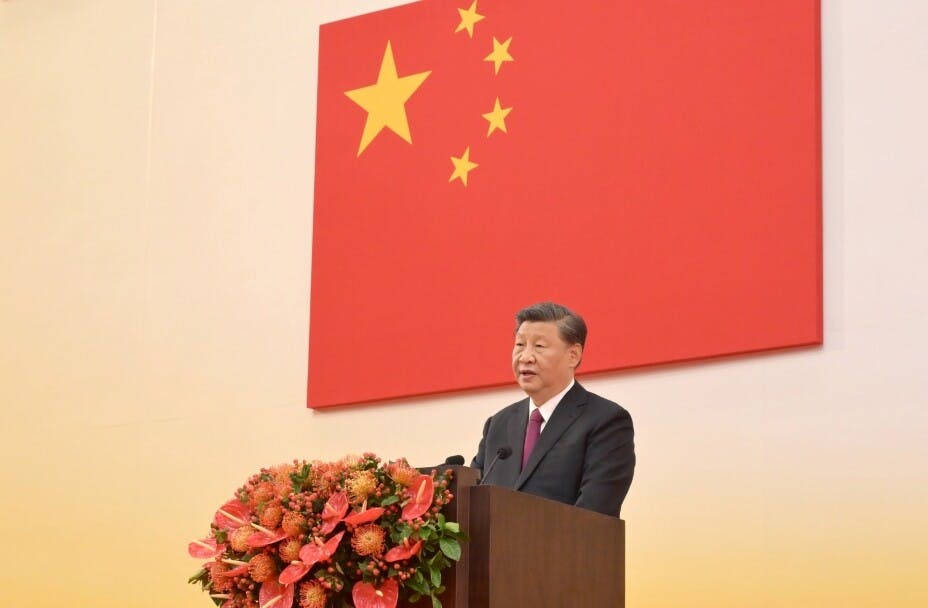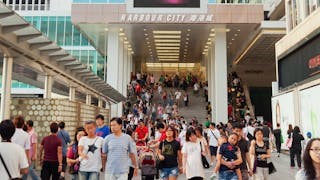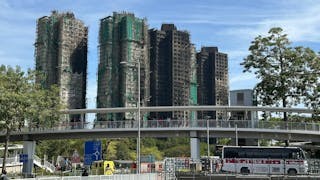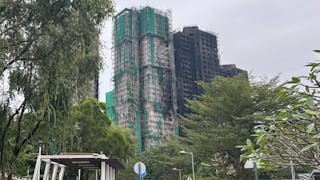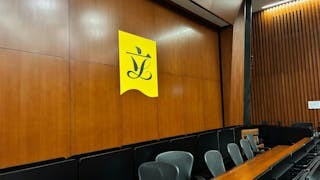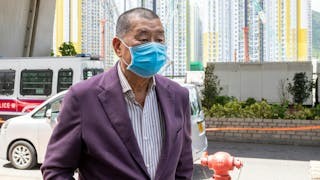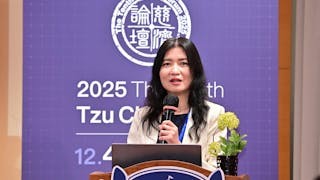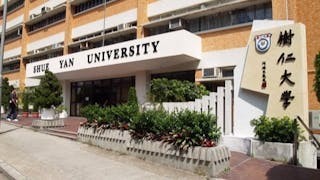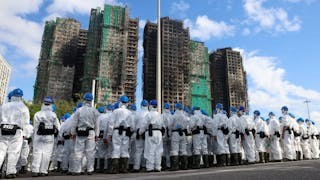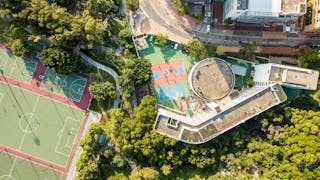國家主席習近平於6月30日下午和7月1日上午訪問香港,主持包括新任行政長官李家超及主要官員和行政會議成員的第六屆特區政府就職典禮,並發表了兩次重要講話。
毋忘近代史 風雨同舟血脈相連
6月30日下午,習近平主席乘高鐵抵達香港後,發表了簡短而重要的講話。首先,他強調一國兩制的香港模式具有強大生命力,這為他為翌日的演講深入闡述一國兩制如何能夠及將怎樣進一步發展埋下伏筆;其次,習主席強調香港「浴火重生」,歷經風雨後呈現出蓬勃的生機;第三,習主席在香港的講話中,首次提到香港為中華民族偉大復興作出了貢獻──這表明香港對國家的經濟仍然具有重要意義。
7月1日上午,習近平主席在李家超宣誓就任新任行政長官後,立即發表了另一篇較長但特別重要的講話。
習主席首先提到,鴉片戰爭以後的中國近代史,記載着香港被迫割讓的屈辱,然後又提到中國共產黨帶領人民進行波瀾壯闊的百年奮鬥。在這場奮鬥中,香港同胞始終與祖國「風雨同舟,血脈相連」。
習主席的講話具有民族主義的意義,他提醒香港同胞,割讓香港是清朝國恥的一部分,中國共產黨在長期的艱苦奮門中必然要改寫這段屈辱的歷史。
橋樑與窗口 香港連接內地國際
隨後,習主席話鋒一轉,指出香港在回歸祖國後,發揮連接內地同世界各國的重要「橋樑和窗口」的積極作用。因此,香港必須積極融入國家發展大局、對接國家發展戰略,繼續保持高度自由開放、同國際規則順暢銜接的優勢。
習主席肯定香港取得的積極成就,同時鼓勵香港繼續保持對外開放。
習主席又指出,儘管香港面對各種風雨挑戰,無論是國際金融危機、新冠肺炎疫情,還是劇烈的社會動盪,香港在經濟、金融、航運、貿易方面仍然蓬勃發展,創新科技產業迅速興起。習主席在6月30日抵港後,參觀了科學園,他非常重視香港在創新科技方面與內地的融合,特別是與深圳前海、廣州南沙等大灣區城市的經濟融合過程。
鄧小平設計 一國兩制長期堅持
習主席7月1日的講話在3個主要方面對香港極為重要。
首先,習近平強調,堅持一國兩制不僅符合國家、民族的利益,也符合香港和澳門的利益。他補充說,這個制度「必須長期堅持」。
習主席暗示要牢記已故中共領導人鄧小平的策略,他為港澳的回歸設計了一國兩制,以應對長遠解決台灣問題。因此,儘管習主席此次在香港的講話中沒有提及台灣,但在即將於10月召開的黨代會上,中共將推出哪些應對台灣問題的新措施,仍有待觀察。
第二,習近平強調了香港一國兩制發展的4個要點:1. 全面準確貫徹一國兩制方針,維護國家主權、安全和發展利益;2. 堅持中央全面管治權,同時保障特別行政區高度自治權; 3.落實「愛國者治港」的理念,以及4.必須保持香港的獨特地位和優勢。
關於維護國家主權和安全,習主席表示,香港居民應該自覺尊重和維護內地的社會主義制度。言外之意,是提醒那些曾經狂熱而盲目地支持西方式民主的香港人,要尊重內地的社會主義制度,避免試圖影響甚至改變內地的制度。
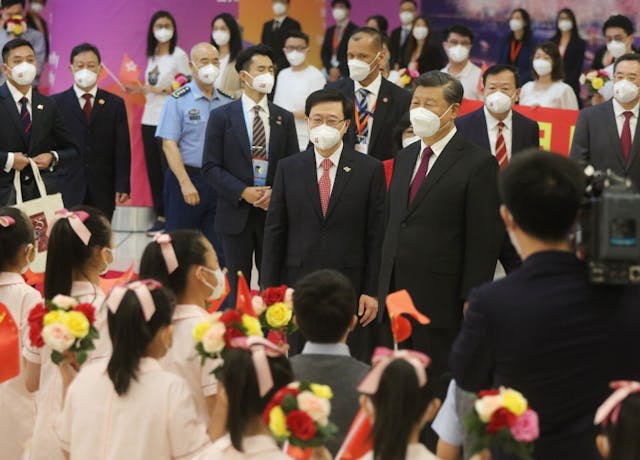
港式民主 中央主權下高度自治
關於堅持內地對香港的「全面管治權」和保障香港高度自治權相統一,習主席提到了兩者並存、有機的關係。香港必須維持行政主導的制度,行政機關與立法機關之間的關係既要相互制衡,又要互相包容。司法機關依然獨立行使審判權。因此,香港繼續擁有其獨特的治理體系──一種不同於政治上完全西化的香港式民主風格。
關於落實「愛國者治港」原則,習主席重申,任何國家和地方都不允許不愛國的人掌握執政權。因此,他希望香港的愛國者守護好香港的繁榮穩定,維護北京中央政府的利益。
關於保持香港的獨特地位和優勢,習主席鼓勵香港鞏固國際金融、航運、貿易中心的地位,同時維護自由開放規範的營商環境,保持普通法制度,拓展暢通便捷的國際聯繫。
從意識形態與實用主義相結合的角度來看,習主席提出的4點必要性,一方面是在意識形態方面維護中央的國家安全利益和國家主權;另一方面是務實地釋放香港的潛力,以提高香港在國際上的競爭力和吸引力。
歸根結柢,習主席對香港表達了4點期望:香港的領導層要提高管治水平;香港應繼續釋放創造力和活力;香港應解決民生問題;香港要保持和諧穩定。
關於提升治理能力,行政長官李家超在競選政綱中已經強調過,這體現了李家超與中央的共識。習主席希望特區政府在引進優秀私營企業人才的同時,提高他們的國家觀念和國際視野。他還強調,善治是增強執政能力的關鍵。
融入大灣區 釋放創造力與活力
要釋放香港的創造力和活力,香港必須與國家「十四五」規劃、大灣區發展藍圖和「一帶一路」倡議對接,中央政府全力支持香港釋放創造力和活力。
在改善民生議題上,習主席明確提出要引領青少年深刻認識國家和世界發展大勢,同時增強他們的民族自豪感和主人翁意識。要幫助青年解決學業、就業、創業、置業面臨的實際困難。因此,中央最高領導層明白,2019年社會動盪的潛在因素之中,有青年不滿現狀、社會貧困和停滯不前等原因。
關於維護和諧穩定的必要性,習主席語重心長地說,香港不能亂,也亂不起。當中的政治訊息很明確:香港人必須從過去20多年的社會政治動盪中汲取慘痛教訓,從現在開始珍惜和諧穩定。
總的來說,習近平的講話對於香港是高度正面的,香港應繼續認識到改善和提升治理水平、解決民生問題、維護國家主權和國家安全利益,釋放創造力和維持經濟動力,以增強香港的經濟實力和國際競爭力。香港應策略性地利用國家的崛起,融入大灣區,為「一帶一路」倡議貢獻力量,同時利用與國際的緊密聯繫,維持香港作為國家繼續現代化的橋樑和窗口作用。香港的一國兩制要繼續下去,香港人就應該有信心,全力以赴,把這個模式發揚光大,為中華民族的偉大復興作出重大貢獻,實現鄧小平和習近平的願景,讓香港繼續為中國的社會主義現代化建設作出貢獻。
President Xi Jinping’s Important Speeches for Hong Kong in the Next 25 Years
Two important speeches were made by Chinese President Xi Jinping, who visited Hong Kong on the afternoon of June 30 and in the morning of July 1 to preside over the inauguration ceremony of the new Chief Executive John Lee and his governing team, including principal officials and members of the Executive Council.
On the afternoon of June 30, immediately after the arrival of President Xi Jinping by the High Speed Rail, he delivered a short but an important speech. First, he highlighted that the Hong Kong model of “one country, two systems” would continue to grow – a short remark that paved the way for his profound elaboration of how “one country, two systems” can and will develop further in his speech on the next day. Second, the President emphasized that Hong Kong remains vibrant and that it is “rising from the ashes” after the city had experienced challenges. Third, for the first time in his speeches on Hong Kong, President Xi referred to Hong Kong as a contributor to the Chinese renaissance – an indication that Hong Kong remains economically significant to its motherland, the People’s Republic of China (PRC).
On the morning of July 1, President Xi gave another longer but a particularly important speech immediately after John Lee swore in as the new Chief Executive.
The President first referred to the Opium War that constituted a humiliation to China as Hong Kong was ceded forcefully, and then he mentioned the leadership of the Communist Party of China (CPC) in the turbulent struggle of the Chinese people for one hundred years. Amid this struggle, the Hong Kong comrades had “blood and pulse” connected with the motherland.
President Xi’s remarks here were nationalistically significant. He reminded the people of Hong Kong that Hong Kong was part of the national humiliation of the Qing dynasty, whose ramshackle history had to be overturned by the CPC in its long and hard struggle.
The President then turned to the positive and functional role of Hong Kong in being “a bridge and a window” for the PRC’s modernization after its sovereignty return to the motherland. As such, Hong Kong has to integrate into the national strategy and planning wile maintaining its high degree of freedom and openness with the international world.
President Xi recognized the positive achievements of Hong Kong, but he encouraged the city to remain open vis-à-vis the outside world.
According to President Xi, although Hong Kong encountered various challenges, ranging from the international financial crisis to Covid-19 and to social turbulence, Hong Kong continues to make progress economically, financially and in the areas of trade and shipping, while its innovative technological industry is rising.
Given that President Xi visited the Science Park after his arrival at Hong Kong on June 30, he attaches immense importance to Hong Kong’s need to consolidate its innovative technology, especially in the process of economic integration with the Greater Bay Area, including Shenzhen’s Qianhai and Guangdong’s Nansha.
President Xi’s speech on July 1 was extremely important for Hong Kong in three main aspects.
First, he emphasized the persistent continuation of “one country, two systems,” which is a principle conforming to the interests of not only the PRC and the nation but also Hong Kong and Macau. He added that the principle has to be “persisted in the long term.”
Implicitly, President Xi bears in mind the strategy of the late Chinese leader Deng Xiaoping, who designed “one country, two systems” for Hong Kong and Macau to deal with the resolution of Taiwan’s question in the long run. As such, it remains to be seen how the PRC will produce any new measures to deal with Taiwan in the forthcoming Party Congress in October, although President Xi in his speeches in Hong Kong this time have not yet mentioned Taiwan.
Second, the President emphasized four necessary elements in the development of the “one country, two systems” in Hong Kong: accurately grasping the principle of “one country, two systems” by protecting national sovereignty, security and developmental interest; maintaining the principle of the center having “comprehensive jurisdiction” over Hong Kong which also enjoys a high degree of autonomy; the implementation of the idea of “patriots ruling Hong Kong;” and the necessity of retaining Hong Kong’s unique status and advantages.
On the protection of the central government’s sovereignty and national security, President Xi said the people of Hong Kong must understand and respect the mainland’s socialist system. By implication, he reminded those Hong Kong people, who previously supported Western-style democracy enthusiastically but blindly, to appreciate the mainland’s socialism and to avoid seeking to influence and to even change the mainland system.
On the compatibility of the mainland’s “comprehensive jurisdiction” over Hong Kong and the city’s high degree of autonomy, President Xi referred to the two aspects’ coexistence and organic relationships. The executive-led system in Hong Kong must be maintained and the relationships between the executive, legislature and judiciary should embrace not only checks and balances but also mutual accommodation. The judicial branch of the government continues to enjoy its right of adjudication. Hence, Hong Kong continues to possess its unique system of governance – a Hong Kong style of democracy different from total Westernization politically.
On the principle of “patriots ruling Hong Kong,” the President reiterated that no other country allows unpatriotic people in grasping the governing power. As such, the patriots in Hong Kong are expected to uphold the interests of the central government in Beijing.
On Hong Kong’s unique status and advantages, President Xi encouraged Hong Kong to develop and strengthen its role as an international and financial center, shipping center and trade center while maintaining the common-law system and efficient communication with the outside world to protect a free and open business environment.
From the perspectives of combining ideology with pragmatism, President Xi’s four-point necessity is both ideological in upholding the center’s national security interest and sovereignty on the one hand and pragmatic in unleashing the potentials of Hong Kong to increase its international competitiveness and attractiveness.
In the final analysis, President Xi expressed his four hopes for Hong Kong: the leadership of Hong Kong should increase its governing standards; Hong Kong should continue to develop its potential and momentum; Hong Kong should tackle livelihood issue; and Hong Kong should maintain harmony and stability.
On the improvement of governing capability, Chief Executive John Lee in his election campaign platform had already emphasized it – a reflection of the consensus between Lee and the central authorities. President Xi hopes that the private-sector talents of excellence should be recruited into the government while their national consciousness and international horizon should be enhanced. He also emphasized that good governance is the key to strengthening ruling capability.
On the need to unleash Hong Kong’s potential and momentum, the city must converge with the nation’s 14thfive-year plan, the Greater Bay Area development blueprint, and the One Belt One Road Initiative, while the central government fully supports Hong Kong to unleash its potentiality and vitality.
On the need to improve livelihood issues, the President explicitly mentioned the need for the youth to understand China, Hong Kong and the world while inculcating in them a higher sense of national pride and being the “master” of governing Hong Kong. The study, employment and residence of the young people must be assisted. As such, the top Chinese leadership understood that one of the underlying factors of the 2019 turbulence was the problems of youth discontent, poverty and immobility in the society.
On the necessity of maintaining harmony and stability, President Xi confidently said that Hong Kong cannot have chaos, and that chaos cannot occur at all. The political message is clear: the people of Hong Kong must learn a bitter lesson from the social and political turbulence in the past two decades and they should cherish harmony and stability from now on.
Overall, President Xi’s speeches are highly positive toward Hong Kong, which should continue to realize its need to improve and elevate the standards of governance, to tackle livelihood issues, to protect the nation’s sovereignty and national security interests, and to unleash its potentiality and maintain its economic momentum to develop its economy and international competitiveness. Hong Kong should make use of its motherland’s rise strategically, integrating with the Greater Bay Area, contributing to the Belt and Road Initiative, utilizing its strong connections with the international world to maintain the city’s functions as both a bridge and window of the PRC’s continuous modernization. If the “one country, two systems” in Hong Kong must continue, the people of Hong Kong should be confident and try their best to make the model work and successful, contributing immensely to the Chinese renaissance and fulfilling Deng Xiaoping and Xi Jinping’s vision that Hong Kong continues to contribute to China’s socialist modernization.
原刊於澳門新聞通訊社(MNA)網站,本社獲作者授權轉載。



